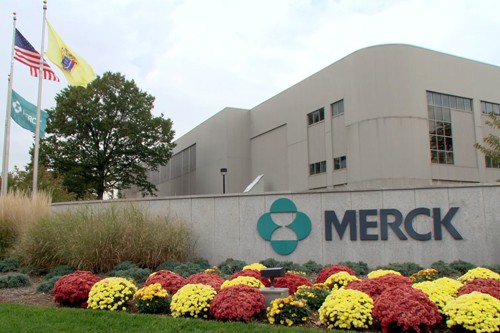
Merck & Co – known as MSD outside the US and Canada – has shared positive results from a late-stage study of its Keytruda (pembrolizumab) combination in certain breast cancer patients.
The phase 3 KEYNOTE-756 trial has been evaluating the anti-PD-1 therapy in combination with chemotherapy as a neoadjuvant treatment in high-risk, early-stage oestrogen receptor-positive, human epidermal growth factor receptor 2-negative (ER-positive/HER2-negative) breast cancer patients.
At a pre-specified interim analysis, the Keytruda-based combination demonstrated a statistically significant improvement in pathological complete response rate compared to placebo plus chemotherapy – meeting one of the trial’s dual primary endpoints.
The trial, which is also assessing adjuvant treatment with Keytruda plus endocrine therapy, will continue to evaluate the second primary endpoint of event-free survival, based on the recommendation from the data monitoring committee.
Dr Gursel Aktan, vice president, global clinical development, Merck Research Laboratories, explained: “This is the first positive phase 3 study evaluating an immunotherapy-based regimen for patients with high-risk, early-stage ER-positive, HER2-negative breast cancer, and an important milestone in our efforts to advance research in early-stage breast cancer.”
In the US, it is estimated there will be approximately 298,000 patients diagnosed with breast cancer and 43,700 deaths from the disease in 2023.
Of all breast cancer patients, about 70% will be diagnosed with hormone receptor-positive, HER2-negative disease. Disease recurrence following surgery for this type of cancer is most common within five years, Merck outlined, and patients with high-risk features have a greater chance of recurrence.
“While significant advancements have been made in the treatment of ER-positive, HER2-negative breast cancer, people diagnosed with high-risk disease as assessed by clinical and pathologic criteria typically have a worse prognosis and limited options before surgery,” said Dr Fatima Cardoso, co-principal investigator of the study.
The positive results come just days after Merck and partner Moderna said they had begun enrolling patients to a late-stage study of their investigational skin cancer vaccine in combination with Merck’s Keytruda.
The phase 3 V940-00 trial is designed to evaluate the safety and efficacy of the vaccine candidate, V940 (mRNA-4157), in combination with Keytruda compared to the anti-PD-1 therapy alone in around 1,089 patients with resected high-risk, stage 2b to 4 melanoma.




